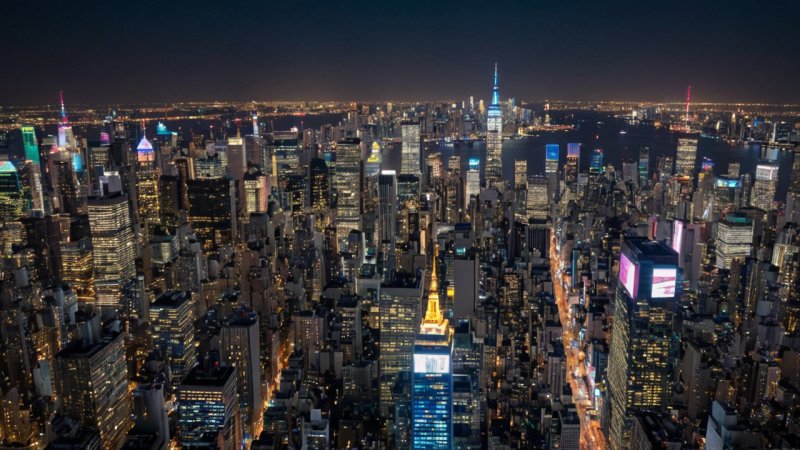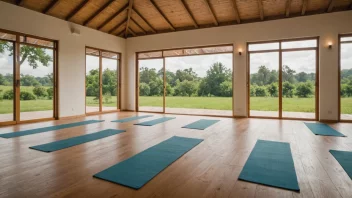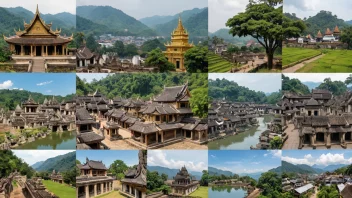Traveling to vibrant cities can offer a multitude of unique experiences, each with its own cultural identity and urban charm. In this article, we will explore two of the world's most iconic urban centers: New York City and Tokyo. Both cities are renowned for their rich culture, bustling streets, and diverse population, but they each have their own distinct character and lifestyle. By comparing various aspects such as culture, cuisine, transportation, and nightlife, we aim to provide a comprehensive overview for travelers considering these two metropolitan giants.
Culture and Heritage
New York City, often referred to as the 'Big Apple,' is a melting pot of cultures, showcasing a rich tapestry of immigrant histories. The city is home to numerous cultural institutions, including the Metropolitan Museum of Art and the American Museum of Natural History. Additionally, neighborhoods like Chinatown and Little Italy celebrate their heritage through vibrant festivals and culinary offerings.
On the other hand, Tokyo represents the fusion of ancient traditions and cutting-edge modernity. With historic sites such as the Senso-ji Temple and the Imperial Palace coexisting alongside neon-lit skyscrapers, Tokyo offers a unique cultural experience. The city is also famous for its seasonal festivals, such as Hanami (cherry blossom viewing) and Gion Matsuri, which attract thousands of visitors.
Pros and Cons of Cultural Experiences
- New York City: Pros include a wide variety of cultural events and a rich arts scene. The cons might be the commercialized nature of some attractions.
- Tokyo: Pros include the blend of tradition and modernity, offering unique experiences. However, language barriers can be a challenge for some travelers.
Culinary Delights
Food is an integral part of urban life, and both New York City and Tokyo have a reputation for their culinary scenes. New York is famous for its diverse food offerings, from classic New York-style pizza and bagels to international cuisines from around the globe. Street food vendors, food trucks, and Michelin-starred restaurants coexist, catering to every palate and budget.
In contrast, Tokyo is a haven for food lovers, renowned for its sushi, ramen, and izakayas. The city boasts the highest number of Michelin-starred restaurants in the world, showcasing the art of Japanese cuisine. Additionally, the unique experience of dining in a themed restaurant or enjoying a kaiseki meal is a must for any visitor.
Pros and Cons of Culinary Experiences
- New York City: Pros include a wide variety of cuisines and dining styles; cons might include higher prices in popular areas.
- Tokyo: Pros include high-quality food and unique dining experiences; however, some visitors may find it challenging to navigate menus without English translations.
Transportation
When it comes to transportation, New York City offers an extensive subway system that operates 24/7, making it easy to navigate the city. Buses, taxis, and ride-sharing services are also widely available. However, the subway can be crowded and sometimes intimidating for first-time users.
Tokyo, on the other hand, is known for its punctual and efficient public transportation system. The Tokyo Metro and Toei Subway provide seamless connectivity throughout the city, while trains like the Shinkansen (bullet train) allow for quick travel to surrounding areas. However, the complexity of the system can be overwhelming, especially for those who are not familiar with Japanese signage.
Pros and Cons of Transportation
- New York City: Pros include a robust subway system and availability of taxis; cons involve crowded conditions and occasional delays.
- Tokyo: Pros include punctuality and cleanliness; however, the complexity of the system can be a downside for tourists.
Nightlife and Entertainment
New York City is famous for its vibrant nightlife, offering something for everyone, from Broadway shows to rooftop bars. The city never sleeps, and visitors can find entertainment options at any hour of the day or night. The variety of clubs, lounges, and live music venues caters to diverse tastes, making it a top destination for nightlife enthusiasts.
Tokyo's nightlife is equally impressive, with an array of izakayas, karaoke bars, and nightclubs. The districts of Shinjuku and Shibuya come alive after dark, offering unique experiences such as themed bars and late-night dining. However, the nightlife in Tokyo typically starts later in the evening and can continue until the early hours of the morning.
Pros and Cons of Nightlife
- New York City: Pros include a wide range of entertainment options and late-night events; cons may include higher prices and long lines at popular venues.
- Tokyo: Pros include unique experiences and a vibrant atmosphere; however, navigating the nightlife scene can be challenging due to language barriers.
Conclusion
Both New York City and Tokyo offer incredible urban experiences, each with its own distinct charm and cultural richness. New York is ideal for those seeking a diverse and dynamic city with a vast array of cultural and culinary experiences. Conversely, Tokyo is perfect for travelers looking for a blend of tradition and modernity, with exceptional food and efficient transportation. Ultimately, the choice between these two urban giants depends on individual preferences and travel interests. Whether you find yourself in the bustling streets of New York or the neon-lit avenues of Tokyo, both cities promise unforgettable adventures.






